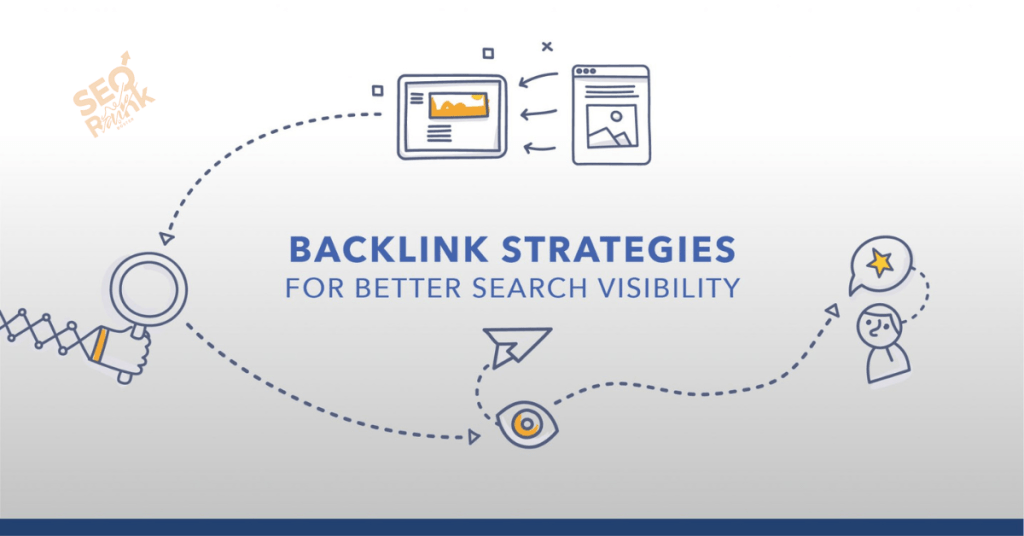Table of Contents
ToggleBacklinks are essential for search engine optimization (SEO) as they help build website authority, increase traffic, and improve search engine rankings. In this article, we will cover various topics related to backlinks, including the different types, their importance, and how to create high-quality backlinks for your website.
How Many Types of Backlinks in SEO?
In SEO, backlinks can be categorized into several types based on their origin and quality. Understanding these types is crucial for developing a successful off-page SEO strategy.
Different Types of Backlinks in SEO
- Natural Backlinks: These are earned organically without any direct effort from the website owner. High-quality content that provides value often attracts natural backlinks.
- Manual or Outreach Backlinks: These are acquired through deliberate efforts, such as reaching out to other website owners, bloggers, or influencers to link to your content.
- Self-Created Backlinks: These are created by the website owner, typically by adding links to forums, blog comments, or online directories. While easy to obtain, they often have lower SEO value.
- Editorial Backlinks: These are given by websites that reference your content as a credible source. Editorial backlinks are highly valuable as they come from authoritative sites.
- Guest Post Backlinks: These are obtained by writing articles for other websites and including a link back to your site. This method helps in building relationships and gaining exposure.
Can You List All Types of Backlinks?
Yes, here’s a comprehensive list of various types of backlinks:
- DoFollow Backlinks: Pass on link juice and help in improving search engine rankings.
- NoFollow Backlinks: Do not pass on link juice but can still drive traffic and increase brand visibility.
- Guest Post Backlinks: Obtained through guest blogging on other websites.
- Editorial Backlinks: Naturally given by other websites when they find your content valuable.
- Image Backlinks: Links embedded in images.
- Profile Backlinks: Created by including a link to your site in user profiles on forums or social media.
- Social Backlinks: Links from social media platforms.
- Comment Backlinks: Created by commenting on blogs with a link back to your site.
- Forum Backlinks: Obtained by participating in forum discussions and adding links.
- Directory Backlinks: From submitting your site to online directories.
- Web 2.0 Backlinks: Created on platforms like Blogger, WordPress, or Tumblr.
Types of Backlinks in Off-Page SEO
Off-page SEO focuses on actions taken outside your website to improve its ranking. Backlinks are a significant part of off-page SEO. Here are the types most commonly used in off-page SEO:
- Guest Post Backlinks: Enhance credibility and drive traffic.
- Social Media Backlinks: Boost visibility and engagement.
- Forum Backlinks: Build authority in your niche.
- Directory Backlinks: Improve local SEO and site visibility.
- Influencer Backlinks: Gained through collaborations with influencers.
Are Backlinks Good for SEO?
Yes, backlinks are good for SEO. They act as votes of confidence from other websites, signaling to search engines that your content is valuable and trustworthy. High-quality backlinks can significantly improve your search engine rankings, drive more traffic, and enhance your website’s authority.
Are Backlinks Important for SEO?
Absolutely, backlinks are crucial for SEO. They help search engines determine the credibility and relevance of your website. The more high-quality backlinks you have, the better your chances of ranking higher in search engine results pages (SERPs).
How to Create Backlinks Step-by-Step
Creating backlinks involves a strategic approach. Here’s a step-by-step guide:
- Research and Identify Prospects: Find relevant websites and blogs in your niche.
- Create Valuable Content: Develop high-quality content that others find useful and worth linking to.
- Outreach: Reach out to website owners, bloggers, and influencers to promote your content and request backlinks.
- Guest Blogging: Write articles for other websites and include links to your site.
- Utilize Social Media: Share your content on social media platforms to gain exposure and attract backlinks.
- Engage in Communities: Participate in forums and online communities relevant to your niche and add links where appropriate.
How to Create Backlinks for My Website Free
Creating backlinks for free requires effort and strategic planning. Here are some effective methods:
- Guest Blogging: Write for other websites without any cost.
- Commenting on Blogs: Engage in discussions and leave thoughtful comments with links to your site.
- Participating in Forums: Join niche-specific forums and add your links in relevant discussions.
- Social Media: Share your content on platforms like Facebook, Twitter, and LinkedIn.
- Directory Submissions: Submit your site to free online directories.
- Answering Questions on Q&A Sites: Provide valuable answers on sites like Quora and include links to your content.
How to Create High-Quality Backlinks
High-quality backlinks come from authoritative and relevant websites. Here’s how to create them:
- Focus on Quality Content: Create in-depth, valuable content that others find worth linking to.
- Build Relationships: Network with influencers, bloggers, and website owners in your industry.
- Guest Posting on High-Authority Sites: Write guest posts for reputable websites.
- Use Data and Research: Publish original research or data that others can reference and link to.
- Leverage Broken Link Building: Find broken links on other sites and suggest your content as a replacement.
- Create Infographics and Shareable Content: Develop visually appealing content that others are likely to share and link to.
FAQs
What is a Backlink in SEO? Can You Provide an Example?
A backlink in SEO is a link from one website to another. Backlinks are also known as inbound or incoming links. For example, if a popular blog links to your website in one of its articles, that link is considered a backlink to your site.
How to Create Backlinks in SEO?
Creating backlinks in SEO involves several strategies:
- Guest Blogging: Write and publish articles on other websites with a link back to your site.
- Outreach: Contact bloggers and influencers in your industry to promote your content.
- Content Creation: Develop high-quality, shareable content that naturally attracts backlinks.
- Engage in Online Communities: Participate in forums, Q&A sites, and social media discussions, adding links where relevant.
- Directory Submissions: Submit your site to reputable online directories.
In conclusion, backlinks are a vital component of SEO. By understanding the different types and implementing effective strategies to create high-quality backlinks, you can significantly enhance your website’s visibility and authority in search engines.


